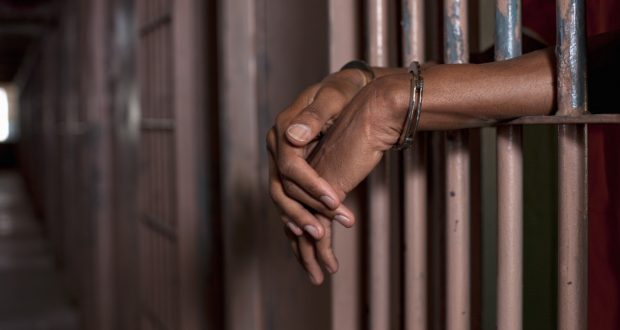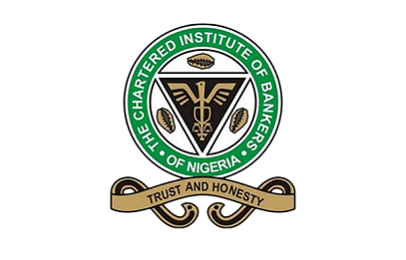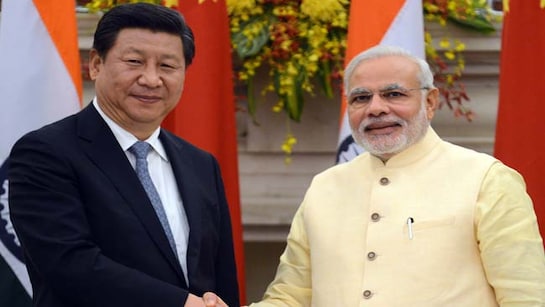The Abraka community in Ethiope-East Local Government Area of Delta State, Nigeria, was plunged into chaos and grief on Saturday, August 30, 2025, following the tragic killing of a pregnant woman, allegedly by a stray bullet fired by soldiers attached to Operation Delta Sweep. The soldiers were reportedly pursuing suspected internet fraudsters, commonly known as “yahoo boys,” when the incident occurred, leading to widespread outrage and protests by residents, students, and indigenes of the university town. The fatal shooting, described as a preventable tragedy, has reignited debates about the conduct of security operatives, the safety of civilians, and the need for accountability in Delta State. This article explores the incident in detail, its immediate aftermath, the community’s response, and the broader implications for security operations in Nigeria.
The Incident: A Fatal Pursuit
The tragedy unfolded on the evening of August 30, 2025, in Abraka, a bustling university town known for being home to Delta State University (DELSU). According to eyewitness accounts, soldiers attached to Operation Delta Sweep, a joint security task force established to combat crime in Delta State, were conducting routine operations when they attempted to stop a vehicle carrying suspected internet fraudsters. The suspects, reportedly driving a white Mercedes-Benz, allegedly ignored the soldiers’ orders to stop and sped off, prompting a high-speed chase through the streets of Abraka.
In their pursuit, the soldiers allegedly opened fire, discharging multiple rounds in an attempt to apprehend the fleeing suspects. Tragically, one of the bullets struck an innocent bystander—a pregnant woman who was going about her daily activities, uninvolved in the chase. Eyewitnesses reported that the woman, whose identity has not been officially disclosed, was hit by the stray bullet and died instantly at the scene. Despite frantic efforts by bystanders and a uniformed individual to rush her to Eku General Hospital in a nearby community, medical personnel confirmed her death upon arrival.
A viral video circulating on social media captured the harrowing aftermath of the incident. The footage showed the woman, dressed in a white outfit soaked in blood, being carried into a vehicle in a desperate attempt to save her life. The video, widely shared across platforms, amplified the community’s outrage and brought national attention to the tragedy. The loss of both the woman and her unborn child has left the Abraka community in mourning, with many describing the incident as a stark example of reckless use of force by security operatives.
Community Outrage and Protests
The killing of the pregnant woman sparked immediate and intense reactions in Abraka, a town known for its vibrant student population and close-knit community. Hundreds of residents, including students from Delta State University, indigenes, and local youths, took to the streets in a mass protest against the actions of Operation Delta Sweep. The protesters, fueled by anger and grief, blocked major roads in Abraka, set tires ablaze, and chanted slogans demanding justice for the victim and accountability from the security operatives involved.
The protests were marked by a palpable sense of frustration with the conduct of security forces in the region. Demonstrators accused the soldiers of gross misconduct and recklessness, arguing that the use of live ammunition in a crowded area was unjustifiable and dangerous. “This is not the first time something like this has happened,” one protester, a student at DELSU, told journalists. “These soldiers act like they are above the law, and now an innocent woman and her unborn child are dead because of their carelessness.”
The unrest saw youths chanting war songs and calling for the immediate sacking of Delta State’s Director-General on Security Matters, David Tonwe, whom they described as incompetent in managing security operations. The protests also highlighted broader grievances about Operation Delta Sweep, with many residents alleging that the task force has strayed from its original purpose of protecting lives and has instead become a source of harassment and extortion, particularly targeting young people suspected of being involved in internet fraud.
Human rights activist Harrison Gwamnishu, who was present in Abraka during the protests, played a key role in calming the angry youths and preventing the situation from escalating into further violence. In a statement shared on social media, Gwamnishu called for the establishment of a Human Rights Committee by the Delta State Government to investigate and address cases of human rights violations. “This tragic incident has once again highlighted the urgent need for accountability,” he said. “Operation Sweep must adhere to its Standard Operating Procedure. Anything outside this is lawlessness.”
Official Responses and Calls for Justice
The incident drew swift condemnation from local and state authorities, who expressed outrage over the killing and vowed to ensure justice for the victim. The Chairman of Ethiope-East Local Government Council, Hon. Chief Augustine Ogedegbe, described the woman’s death as “painful and avoidable” in a statement posted on his official Facebook page. Ogedegbe promised that the council would pursue the matter with the seriousness it deserved, engaging relevant security agencies to ensure accountability and prevent similar tragedies in the future. “It is deeply concerning to see incidents like this, which diverge from the intended duties of combating crime and ensuring public safety,” he stated, extending heartfelt condolences to the bereaved family.
Delta State Governor, Rt. Hon. Sheriff Oborevwori, also reacted to the incident, assuring residents that justice would be served. In a statement, the governor urged security operatives to exercise maximum restraint and adhere to established operational standards to avoid harming innocent civilians. “My administration is committed to protecting the lives and property of all residents of Delta State,” Oborevwori said. “We urge the people of Abraka to remain calm as investigations continue into this tragic incident.” The governor’s response emphasized the need for professionalism among security forces and highlighted the state’s commitment to addressing the concerns of its citizens.
The Take It Back Movement (TIB), Delta State chapter, issued a strongly worded statement condemning the killing and demanding an independent inquiry, compensation for the victim’s family, and urgent reforms in Operation Delta Sweep. Signed by Comrade Ochuko Famili, the statement described the incident as “a senseless killing that has once again exposed the incompetence and recklessness of security management in the state.” The group vowed to stand with the people of Delta State until justice is served and the security outfit is reformed to prioritize the safety of citizens.
Despite these assurances, neither the Nigeria Police Force nor the Nigerian Army had issued an official statement on the incident as of the time of reporting. Attempts to reach the Delta State Police Public Relations Officer, SP Bright Edafe, for comment were unsuccessful, as his lines were unavailable. The lack of an immediate response from security agencies has fueled speculation and distrust among residents, who are demanding transparency and swift action.
Broader Context: Security Operations in Delta State
The killing of the pregnant woman in Abraka is not an isolated incident but part of a broader pattern of concerns about the conduct of security operatives in Delta State. Operation Delta Sweep, a joint task force comprising soldiers, police, and other security personnel, was established to address rising crime rates in the state, including kidnapping, armed robbery, and internet fraud. However, the task force has faced criticism for its heavy-handed tactics, with residents frequently accusing operatives of harassment, extortion, and excessive use of force.
Abraka, in particular, has been grappling with a surge in insecurity in recent months. Reports indicate an increase in kidnappings, with students and residents becoming frequent targets of criminal gangs. In June 2025, a joint security operation in Abraka led to the killing of four suspected kidnappers, sparking ethnic tensions and retaliatory violence. The community has repeatedly called for heightened surveillance and regular patrols to curb crime, but incidents like the recent shooting have raised questions about whether security operations are achieving their intended goals or exacerbating tensions.
The pursuit of suspected internet fraudsters, or “yahoo boys,” is a contentious issue in Delta State. While internet fraud is a significant concern, the aggressive tactics used by security operatives have often led to unintended consequences, including harm to innocent civilians. The Abraka incident has reignited debates about the need for better training, stricter adherence to rules of engagement, and greater accountability for security personnel.
Implications and Calls for Reform
The tragic death of the pregnant woman has far-reaching implications for both the Abraka community and Delta State as a whole. At the local level, the incident has deepened mistrust between residents and security operatives, with many questioning the effectiveness of Operation Delta Sweep. The protests that followed the shooting reflect a broader sentiment of frustration with the state’s security apparatus, which many residents believe prioritizes aggressive enforcement over the protection of lives.
The incident also highlights the dangers of using live ammunition in populated areas, particularly during high-speed chases. Security experts argue that such tactics are not only risky but also often ineffective, as they can escalate situations and lead to collateral damage. The death of an innocent woman and her unborn child underscores the need for stricter guidelines on the use of force and better coordination among security agencies to prevent such tragedies.
At the state and national levels, the Abraka incident has sparked calls for comprehensive reforms in security operations. Civil society organizations, including the Take It Back Movement, have demanded an independent investigation into the killing, arguing that internal probes by security agencies may lack credibility. There are also calls for compensation for the victim’s family and psychological support for the community, which has been traumatized by the loss.
The protests in Abraka have drawn comparisons to similar incidents across Nigeria, where security operatives have been accused of excessive force. The killing of 16 soldiers in Okuama, Delta State, in March 2024, during a peacekeeping mission, and the subsequent military response, highlighted the volatile nature of security operations in the region. These incidents underscore the need for a balanced approach that prioritizes both crime prevention and the protection of civilian lives.
Community Demands and the Path Forward
The Abraka community is united in its demand for justice for the pregnant woman and her unborn child. Protesters have called for the identification and prosecution of the soldiers involved in the shooting, as well as a review of Operation Delta Sweep’s tactics. Community leaders have urged residents to remain calm and allow due process to take its course, but the anger and grief in Abraka are palpable.
The incident has also galvanized students and youths, who form a significant portion of Abraka’s population. Their protests reflect a growing sense of empowerment among young people to demand accountability from authorities. However, there are concerns that prolonged unrest could lead to further violence, particularly if the government and security agencies fail to address the community’s grievances.
Moving forward, the Delta State Government faces the challenge of restoring trust in Abraka and other affected communities. This will require transparent investigations, meaningful engagement with residents, and tangible reforms to ensure that security operations prioritize civilian safety. The establishment of a Human Rights Committee, as suggested by activists, could be a step toward addressing systemic issues and preventing future tragedies.
Conclusion
The killing of a pregnant woman in Abraka by a stray bullet during a soldiers’ chase of suspected internet fraudsters has cast a dark shadow over the community and Delta State. The incident, which occurred on August 30, 2025, has sparked widespread protests, with residents demanding justice and accountability from Operation Delta Sweep. The tragedy highlights the dangers of excessive force and the urgent need for reforms in security operations. As investigations continue, the people of Abraka mourn the loss of an innocent life and call for measures to ensure that such a tragedy never happens again. The incident serves as a stark reminder of the delicate balance between maintaining law and order and protecting the lives of civilians, a balance that must be prioritized to rebuild trust and ensure justice in Delta State.








